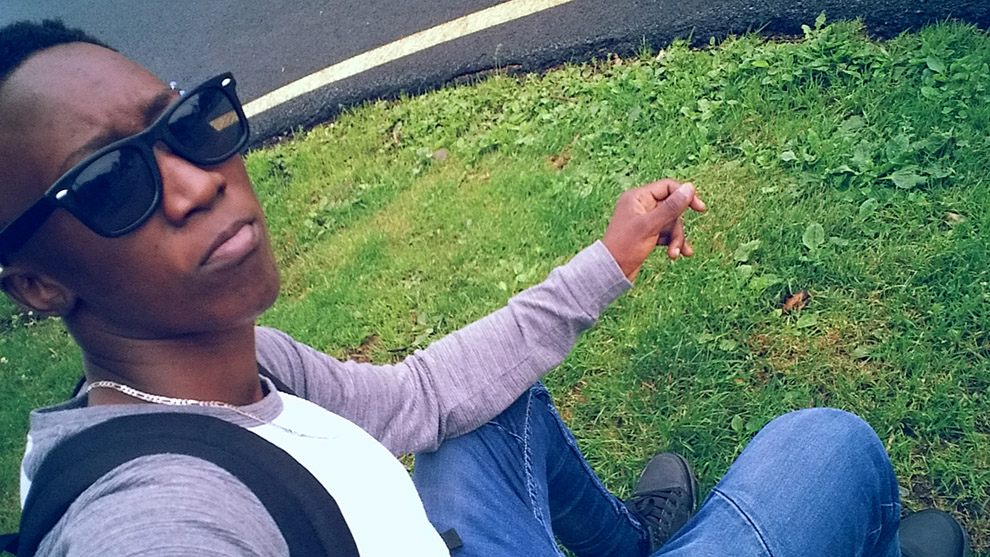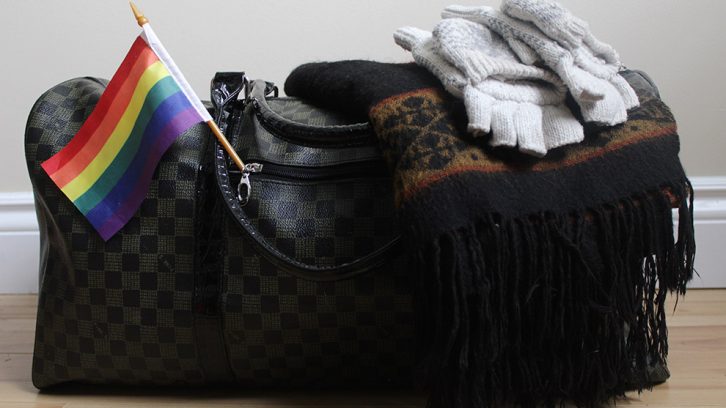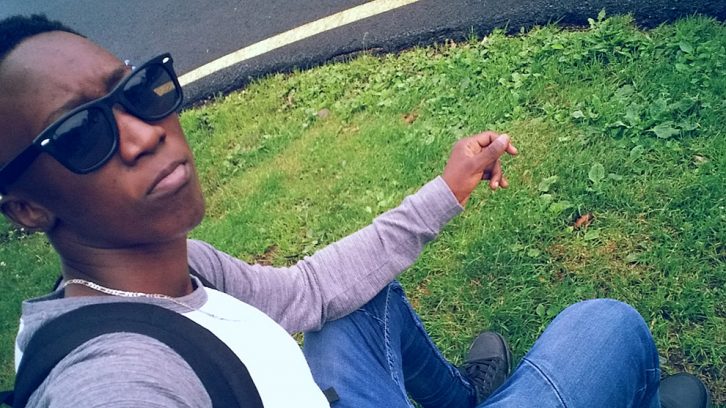Refugee
Nova Scotia’s first female Rainbow Refugee thrives
‘The best part is that people don’t care who you are’

caption
Camara fled Gambia and applied for refugee status in neighbouring Senegal before being paired with RRANS.
caption
The first thing Camara noticed about Halifax was the cold.”I was freaking out!” she said about the weather.Jahu Camara arrived in Halifax 14 months ago after fleeing from Gambia to escape persecution as a lesbian. Now she lives in Moncton with her girlfriend, works part time at Marshalls, and plans to study health and fitness next fall.
“Everything was easy for me,” Camara said about adjusting to a new country and culture. The only thing that shocked her was the chilly weather.
“The first day was very cold!”
Camara was the first female refugee sponsored by the Rainbow Refugee Association of Nova Scotia (RRANS). Even though Camara’s sponsorship ended in October after her first full year in Canada, she still keeps in touch with RRANS members.
“If I need any help from them, they are still there for me,” Camara said. They often check in to ask how she is doing.
RRANS has been busy lately; the association welcomed three new refugees this autumn. A Middle Eastern man arrived in October, and a Middle Eastern couple arrived a month later.
Kevin Kindred, the communications co-ordinator for RRANS, said three new arrivals within such a short timespan tested the association’s ability to provide adequate support.
“The secret is being organized and co-ordinated,” he said. “A lot of it is just knowing in advance how to put the machine in motion.”
According to a report from the ILGA, a federation of 1,200 organizations advocating for LGBTQ rights, there are more than 70 countries around the world that still persecute or jail LGBTQ people and at least five countries that punish homosexuality with death. In Gambia men and women who engage in homosexual acts face at least five years in prison.
The Conservative government advocated for LGBTQ refugees in 2009 and 2010, and encouraged private sponsorship of people fleeing persecution due to their sexual orientation or gender identity. Kindred said RRANS formed in 2011 during that time.
“I realized that the international situation is a world apart from what we fight for here in Canada,” Kindred said about why he joined RRANS. “Rainbow Refugees was an example of one concrete thing that I could do to make some impact.”
RRANS covers one year of living expenses for each refugee it sponsors, but stays connected and offers resources after that year comes to an end.
“It’s not as though some magic happens at the one-year mark and there’s no need for any more connection,” Kindred said. RRANS continues to help with job-hunting, language issues, and social integration. “It really depends on the needs of the person. Some people are very self-sufficient and some people are still struggling.”

caption
Camara fled Gambia and applied for refugee status in neighbouring Senegal before being paired with RRANS.For Camara, life in Canada has moved along without a hitch. She moved from Halifax to Moncton after getting engaged in January.
“I didn’t experience any problems,” she said. “The only thing I miss is my mom.”
Her mother and brother still live in Gambia. She has a sister in Germany and another brother in the Netherlands. She plans to visit her father and five half-siblings in the United States next year.
“The best part is that people don’t care who you are,” Camara said when asked about her favourite part of Canada. “Everybody is one. Nobody really looks at you and says ‘you’re gay’ and discriminate (against) you or bully you.”

